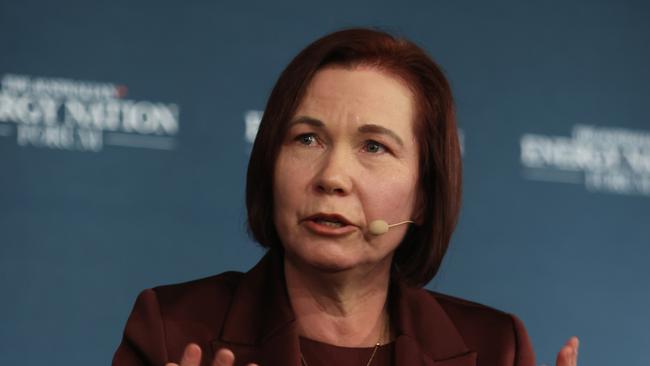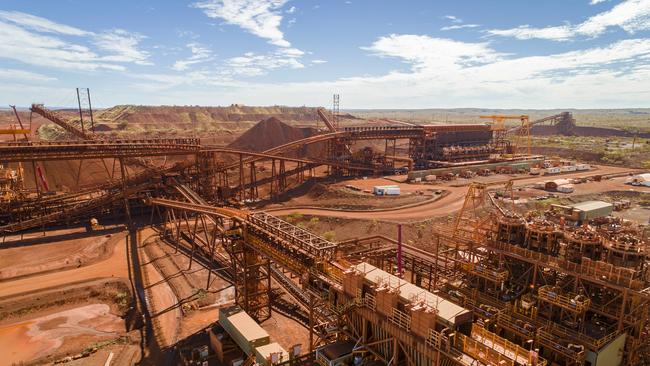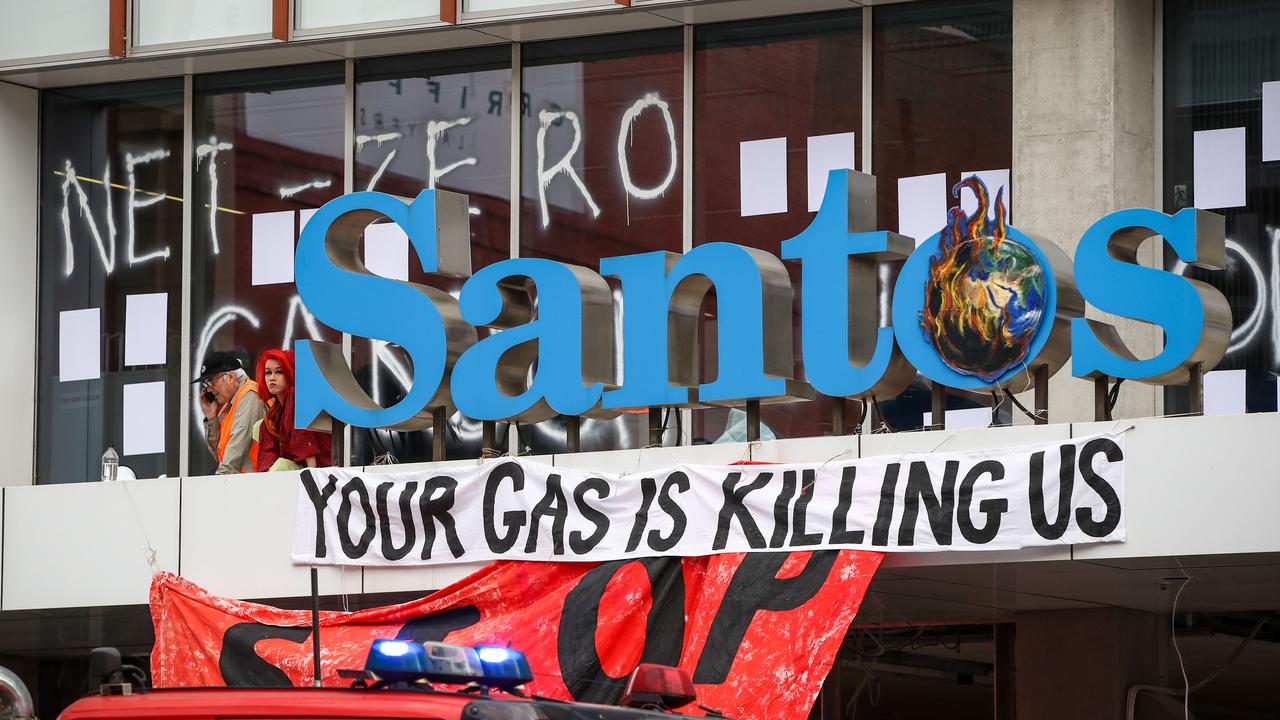WA Pilbara becomes IR powder keg as miners row with union and accuse it of breaking the law
The Electrical Trades Union is accused of making dishonest same job, same pay claims and threats against WA miners, in an escalating row with the Minerals Council.

Business
Don't miss out on the headlines from Business. Followed categories will be added to My News.
Miners have accused the union movement of making false and unlawful claims in their efforts to remake the Pilbara after decades of industrial peace.
The Electrical Trades Union allegedly made dishonest “same job, same pay” claims and threats against WA mining businesses, and potentially breached the Fair Work Act by misrepresenting the situation.
An ETU organiser in the iron ore-rich Pilbara led at least one company to believe it was in breach of “same job, same pay” rules introduced by the Albanese government as part of industrial relations reforms condemned by the leaders of BHP and Rio Tinto.
ETU WA state secretary Adam Woodage was unperturbed by the accusation and said: “Let me be clear – the ETU is not going to be taking a backward step in the re-unionising of the resources sector.”
Minerals Council of Australia chief executive Tania Constable blasted the ETU, turning up the heat between the economy’s biggest exporters and the trade unions who want greater influence over the workforce.

“This is further evidence of unions misusing the vast new powers that the federal government has given them in order to bully their way into the Pilbara,” Ms Constable said.
“This has nothing to do with workers or wages, it is solely about expanding union power. The actions of some unions in blatantly misrepresenting the law show the lengths they will go to in order to abuse such powers.”
The lobby group alleges multiple employers in WA have received an email from the ETU claiming they have labour hire workers doing the same jobs and tasks as employees, and threatening legal action.
“As these two groups are qualified equally and are tasked to do same tasks they should be on same rates of pay as per new legislation which has passed through parliament,” an email obtained by The Australian states.
“The ETU will vigorously defend members pay and conditions and use the full force of our legal team to do so if need be.”
But there is no basis for the ETU claims, according to the miners, because ‘‘same job, same pay” obligations can only apply if the Fair Work Commission has made a regulated labour hire arrangement order that applies to a specified workplace.
No such orders have been made in relation to the WA mining industry so there are no “same job, same pay” obligations on any employer.
Section 345 of the legislation states no one must knowingly or recklessly make a false or misleading representation about the workplace rights of another person.
Mr Woodage, who has run for Labor preselection at a federal level and at a state level contested the seat of Dawesville for the ALP in 2017, said he stood by any ETU organiser who asserted a company may be in breach of the Fair Work Act.
“Our organisers are trained to raise legitimate concerns when there is a reasonable basis to do so, particularly when it relates to the rights of workers under new or existing legislation,” he said.
“Companies allege all sorts of things against ETU members all the time, but that’s what due process is for — to determine whether a breach has occurred or not. The same principle applies here.”
Referring to the email sighted by The Australian, Mr Woodage said: “I understand the company has since responded to our organiser, assuring us that their house is in order and they are fully compliant with the same job, same pay (SJSP) requirements. That’s good to hear, and if true, there is no issue. But highlighting potential breaches — or questioning compliance — is not unlawful. In fact, that’s our job.”
Former Liberal leader Peter Dutton stunned many in the mining industry when he ruled out trying to repeal ”same job, same pay” laws if elected.
The Minerals Council said it would lobby the new Liberal leadership to reconsider that stand. Anthony Albanese visited the Rio Tinto operations in the Pilbara, where his first-term industrial relations changes now face an acid test, during the election campaign.
Rio chief executive Jakob Stausholm was among the first to warn the changes could reignite the workplace tensions of the 1980s when the miner endured scores of strikes.
In March, the ETU said it had made inroads in signing up members at the BHP and Rio iron ore operations, and that it intended to force the mining giants into collective bargaining via the Fair Work Commission.
The ETU has sought to establish it has the backing of a majority of workers in BHP port and rail operations and the high voltage division.
In the case of Rio, Mr Woodage said signals technicians had opted not to proceed to the Fair Work Commission after the mining giant offered them pay rises of $20,000 to $40,000 a year.
Miners have pointed to the Fair Work Commission previously making adverse findings against Mr Woodage as they question the tactics the ETU is using.
In a 2021 Fair Work case involving South32, Mr Woodage was found to have made a series of “misrepresentations” to employees including by suggesting that the company had reduced wages and conditions to pay for its legal costs.
Mr Woodage said the South32 decision was “now years old and widely known”.
“At the time, we were involved in a David v Goliath campaign, in the end alongside the AMWU (Australian Manufacturing Workers’ Union), against an aggressively anti-union employer who spent millions trying to undermine our presence and legitimacy,” he said.
Originally published as WA Pilbara becomes IR powder keg as miners row with union and accuse it of breaking the law



